Why 8 Fashion Designers Joined the Women's March
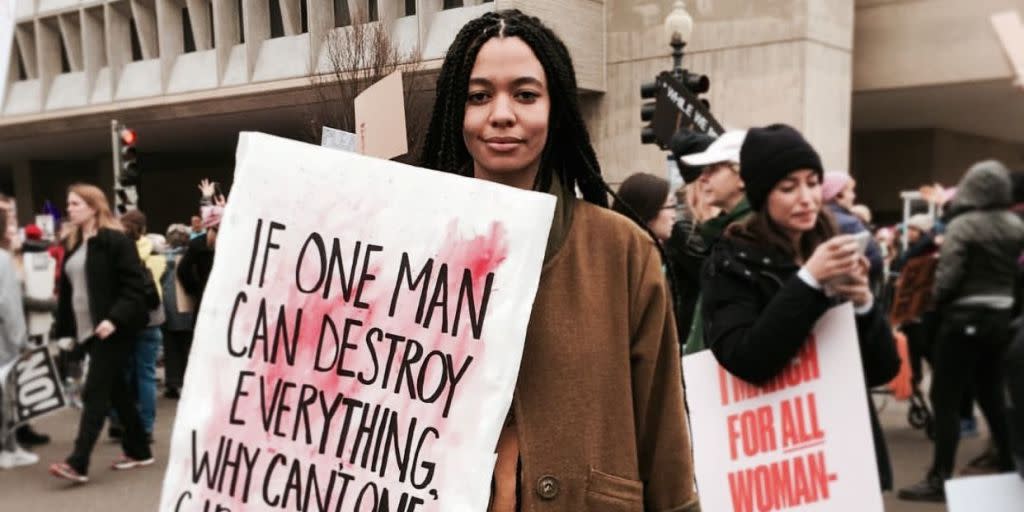
Now more than ever, fashion is merging with politics. Designers are speaking up beyond the realm of the runway, using their craft as a vehicle to voice their opinions. From Prada's recent menswear collection, inspired in part by protests from the 1970s, to designers declining to dress the First Lady, fashion is taking a position.
Here, 8 designers discuss why they marched, fashion's place in an increasingly political world, and how "simply marrying someone powerful is not an example of living up to a woman's full potential."
Kaelen Haworth, KAELEN

#WhyIMarch: Because I don't think it's acceptable to be passive anymore. I wanted to be here in D.C. to express my anger and frustration with the current administration, but also to be a part of something hopeful and historical.
On fashion and politics: Fashion is important because it is a high-visibility industry. People look to fashion and designers to be arbiters of taste and create something beautiful, and that goes beyond clothing. As a creative industry that supports inclusivity, we can be vocal and encourage others to ask questions and be engaged.
On dressing the Trump women: No I wouldn't. The reason goes back to why I march in the first place―silence is unacceptable, and if you don't speak out, you are complicit. Go for it, Ralph.
Mara Hoffman
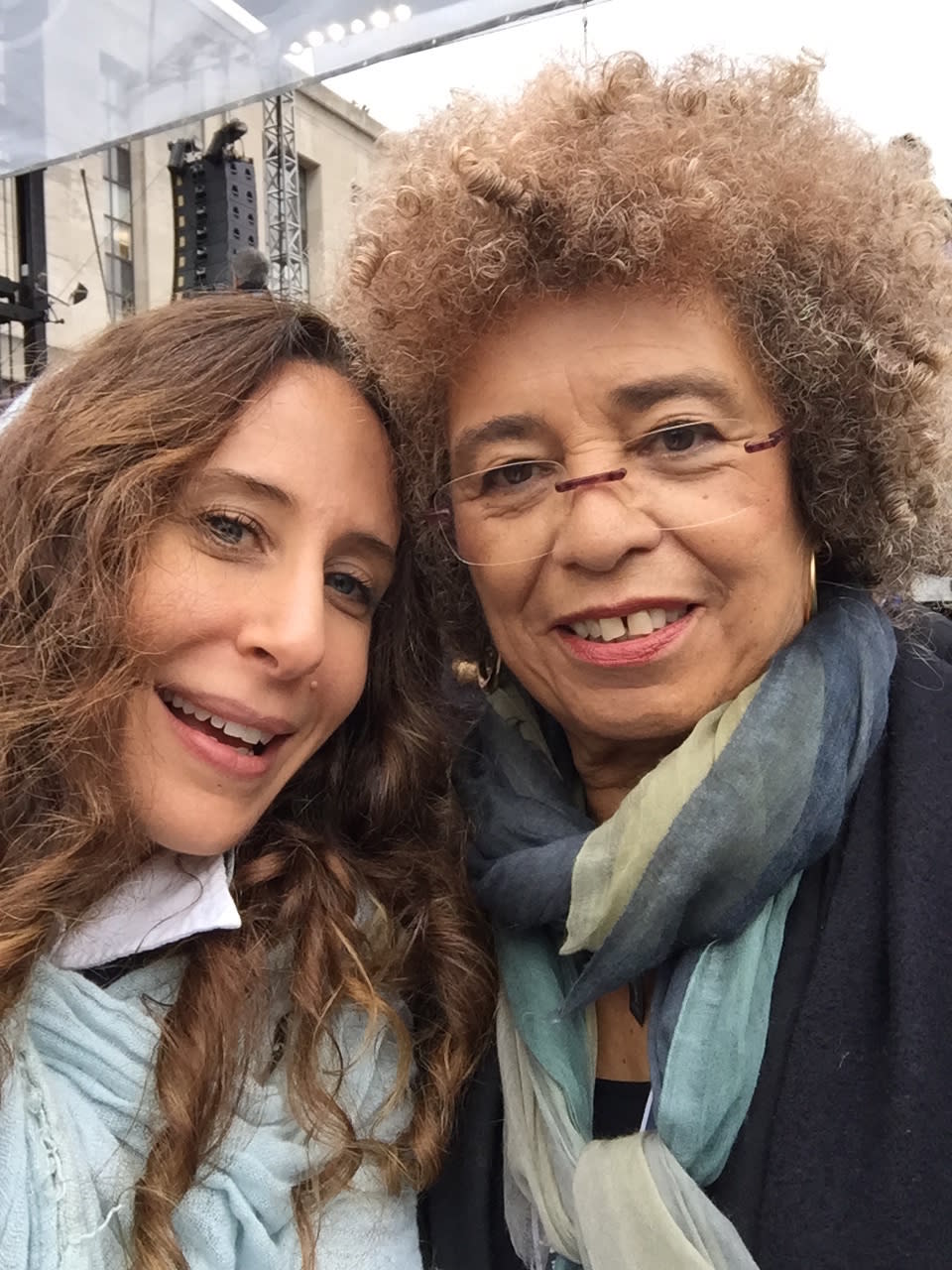
#WhyIMarch: For me it is a zero brainer. My company is 30 people, 29 of whom are women, I was raised predominately by my mom with my sister and 9 female cousins, I have grown up in a very woman-based existence and there was never this idea of any restriction. Its not like 'ugh I have to [march],' it's a need and a want to actually make my life a more fulfilled thing. [I'm] showing up for the people that can't show up, showing up because I can show up, because I can get in a car and my business is going to run and I am going to be okay. I have childcare and my husband and I have all these things working for me. There are so many women who don't have that. I am fighting for my own body and I am fighting for the body of all women right now and I am fighting for the rights of every human being.
On the shifting focus of the industry: On a personal level, my company is shifting toward sustainability. I think right now there is an enormous focus on the industry to make greater changes across the board, from the way we manufacture to our impact on the environment to our messaging. Fashion has always had a voice. People pay attention to it, people are inspired by it, it's an aspirational thing. And if you use that voice to speak to things that can activate young women and women at any age, it is being used for something beyond the clothing.
On dressing the Trump women: I wouldn't. I see it the same way I would see any celebrity or "influencer" who is not in alignment with my brand and does not communicate the vision or the values that I worked hard to put out through my company. If somebody is out of alignment with that, it is not a natural fit for me.
Aurora James, Brother Vellies

#WhyIMarch: It is incredibly important that women and girls understand that they have the same power as any one man. We can revolutionize the world with good in the same way anyone else can attempt with hate. We have four years to find our next potential Madame President, and I bet you she will be among us at the March.
On whether fashion is important: Fashion itself is not important. It's what we do with it and how we make it that is. My business is based on the idea of empowering people in Africa through our production. We were founded on the idea of creating jobs for people, particularly women, through the fashion and design process. I believe more fashion companies should make positive changes towards sustainability and ethical practices.
On dressing the Trump women: "Dressing" them implies the idea of creating something special for them or giving my time to make sure their pieces are perfectly suited to them. That doesn't interest me. I would much rather dress Malala [Yousafzai] or Malia Obama or another young woman who is inspiring to me. Simply marrying someone powerful is not an example of living up to a woman's full potential.
Rebecca Taylor
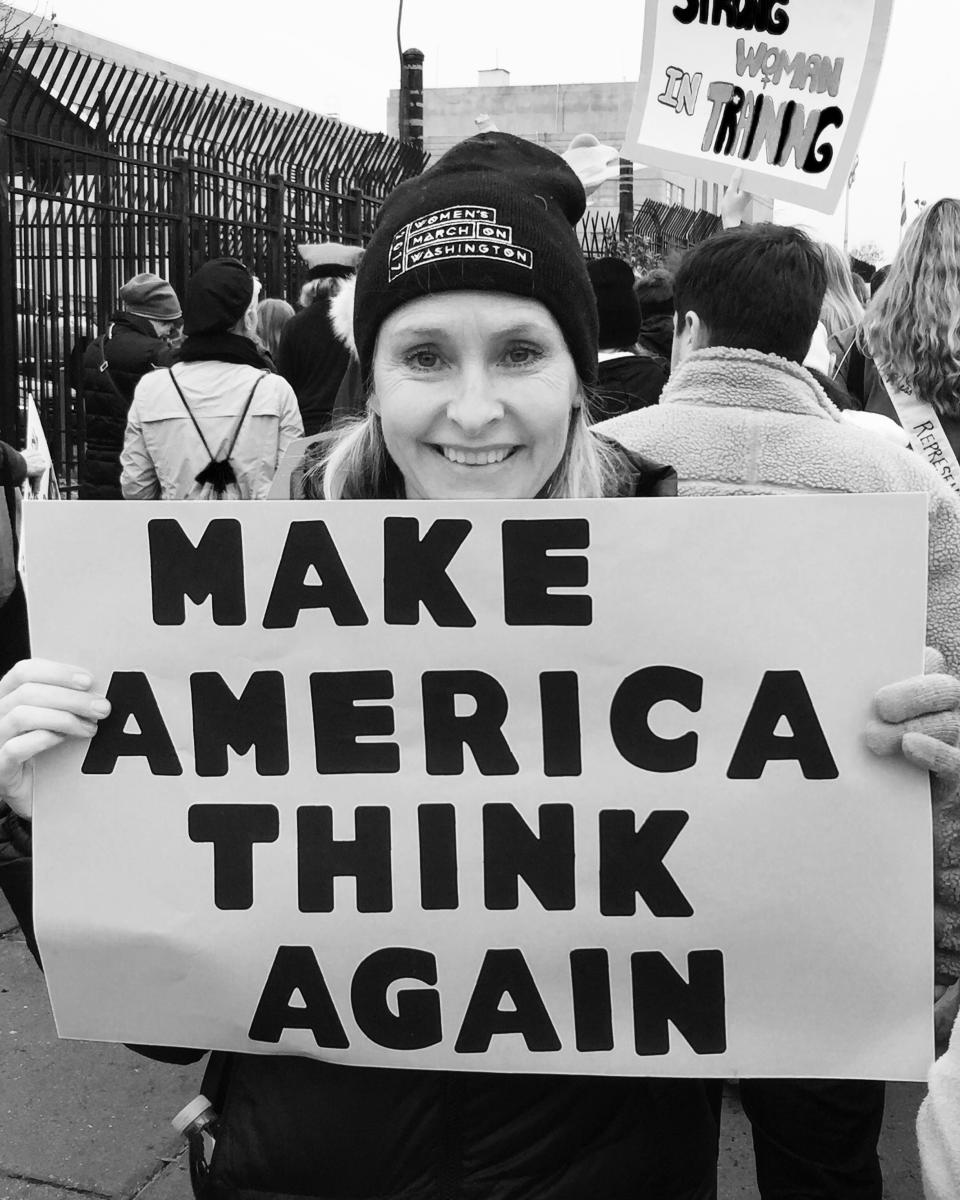
#WhyIMarch: As a new American citizen, a mother of 2 daughters (and a son), and as a woman, I am marching for ALL of us as a nation. I want this administration to know that we ALL count, that we are one. Discrimination, in every sense of the word, fails us as human beings. It divides us and makes us weaker!
On fashion as a form of expression, via social media: As a designer, I have always strived to create designs that allow women to feel confident, empowered, and the best version of themselves. Fashion serves as a form of self-expression and has become another outlet for people to share their voice without any verbal communication. That message can be shared with a wider audience due to social media. And through social media we are able to interconnect with people who share the same ideals.
On dressing the Trump women: Dressing the president's wife is a political thing and quite an important thing. I hope that Melania continues to support U.S. designers as Michelle Obama has over the last eight years. I would like to see how this new administration progresses in the next six months/year.
Becca McCharen, Chromat

#WhyIMarch: To express my support of #BlackLivesMatter, to protest against Trump, and to march in solidarity with all those who will become targets for discrimination under the new administration. We know that no one is entitled to a happy ending, and this has further strengthened our drive to create the world we want to see.
Reconciling the relationship between fashion and politics: Fashion is meaningful and holds value. It represents who we are. I am honored to be able to design garments that empower us to feel and be stronger together and to shape the fashion industry into a place that not only protects the safety of all women and people of color, but celebrates them. It's impossible not to be affected by the feeling of paranoia and gloom in the current political climate, and these feelings feed directly into our design process. Fashion design is my creative outlet. What the Chromat team and myself are feeling is what you see on the runway.
Maria Cornejo
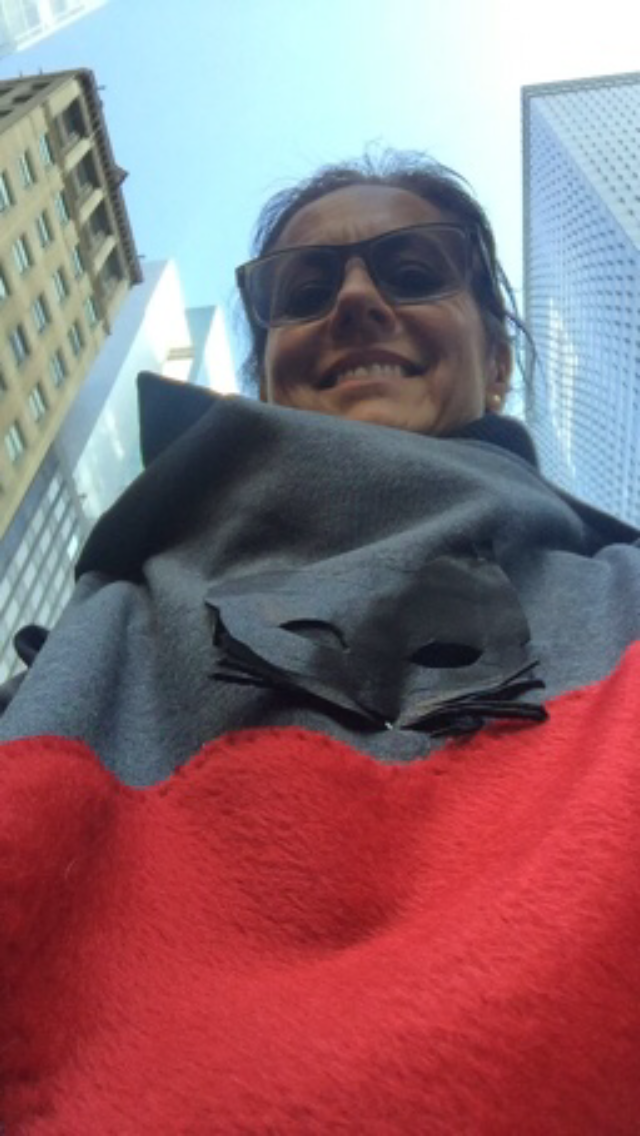
#WhyIMarch: It's important to support the Women's March on Washington not only because we are all created equal and shouldn't have our basic human rights ignored or threatened, but the fashion industry in particular is such a diverse and tolerant place. LGBTQ individuals, immigrants, and women all make up the rich community that we work in and are inspired by.
Stephanie Danan, Co
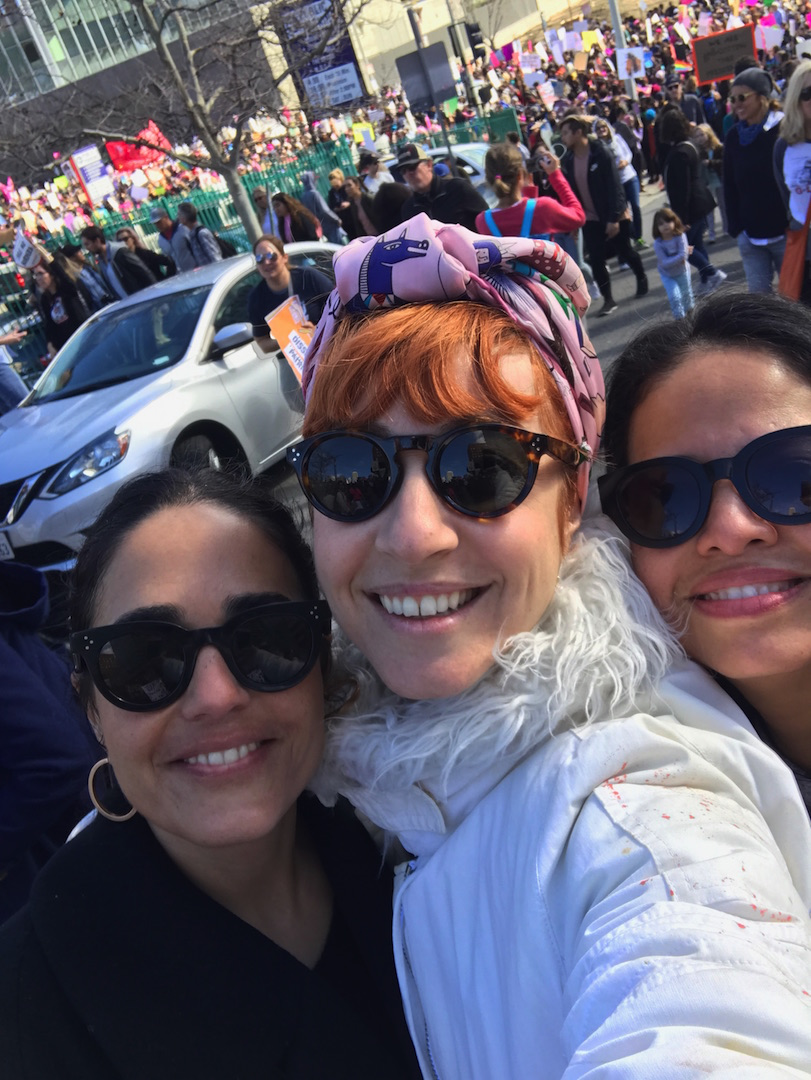
#WhyIMarch: I'm attended the march because human rights are women's rights. The march is one of the many initiatives that will unite women and inspire us to get involved in protecting the rights we have fought so hard for. We cannot take our democracy for granted, and we have to fight for equality for all and freedom of choice.
Fashion as a tool: Fashion is a beautiful tool for self expression and empowerment. It is a way to reflect our rich creative and emotional worlds and the principles we value; not only aesthetically but often socially and politically as well. The brands/designers we choose to wear is becoming more important today as well–connectivity to the fashion we choose to buy is becoming more and more essential. As a designer of Co and owner of the company, I am committed to fight for women's rights by extending our services to organizations we believe in, and to support those organizations financially.
Virginia Craddock, Kurt Lyle
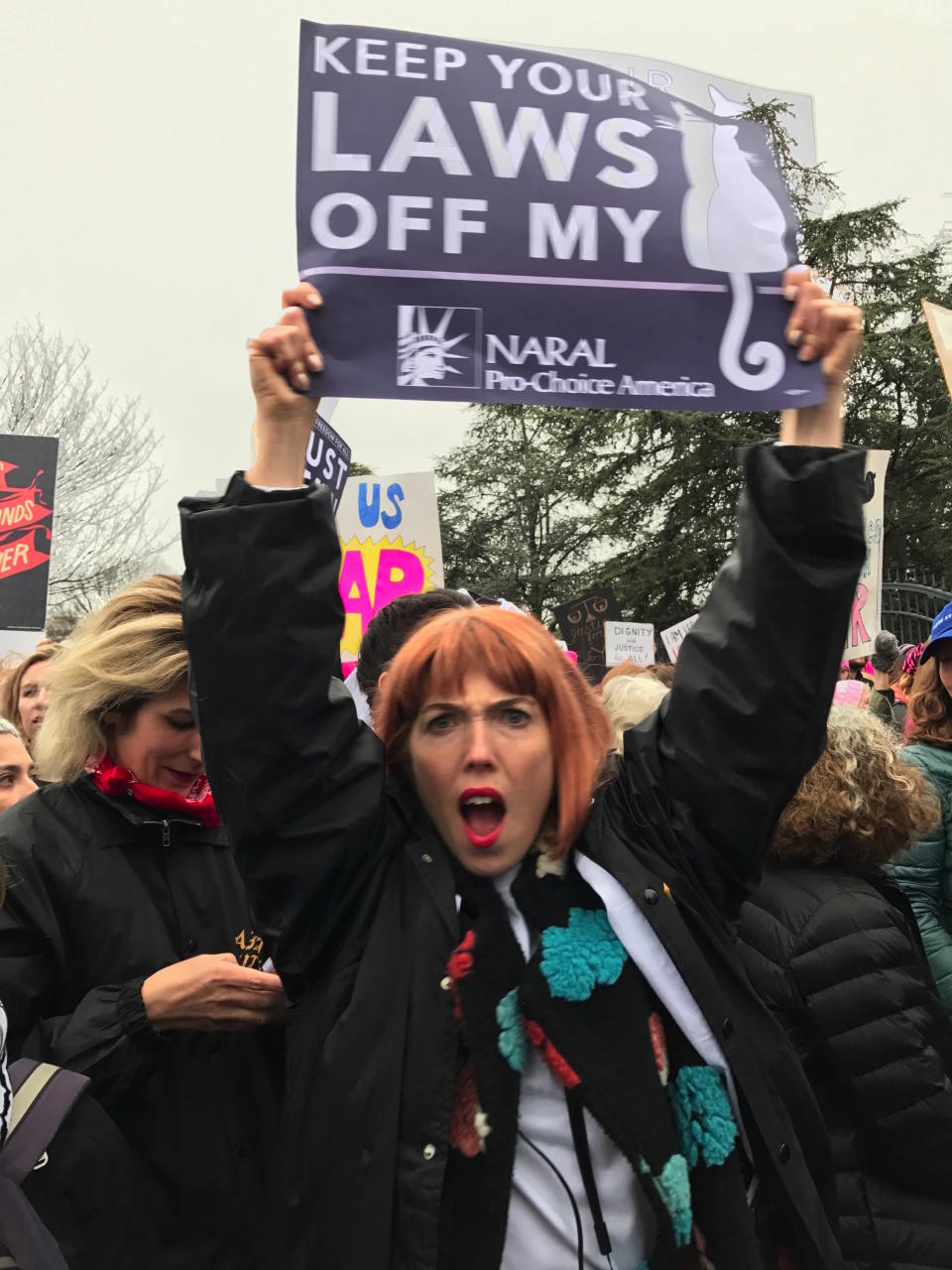
#WhyIMarch: I am one of those naive people that had no room for doubt concerning the election-Hillary was a shoo-in-and not because she was the most amazing candidate that has ever pursued the presidency, but because Trump lacked human decency and ran a campaign based on fear, chaos, and marginalization. Whoa, was I wrong. This election shocked me out of my protected liberal cocoon and made me realize that although we have taken great strides to level the playing field between men and women, blacks and whites, rich and poor, we still wrestle with a deep undercurrent of ugly prejudice. As Gloria Steinem said [at the Women's March in D.C.], "We must put our bodies where our beliefs are. Pressing 'send' is not enough."
Defining fashion: Fashion is a powerful part of diversity. A diverse community is fluid and strong. Fashion is a cultural barometer.
On dressing the Trump women: I would not ever dress a Trump woman, unless she changed her allegiances, then we can have a conversation :)
You Might Also Like

